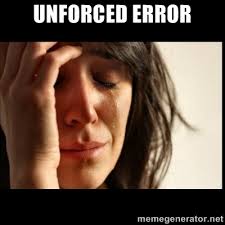In this follow-up post, three factors that make Rufinus’ corruption of Origen’s On First Principles all the more egregious.
First, after recklessly changing anything he doesn’t like in translating Origen’s book, absurdly claiming that anything Origen says that doesn’t comport with the (then) new Nicene orthodoxy must have been changed by heretics, and lyingly (or idiotically) claiming to have filled things in only with Origen’s other words or ideas (“I have said nothing of my own, simply giving back to him his own statements found in other places”), Rufinus has the staggering chutzpah to say:
One request… I solemnly make of every one who shall either transcribe or read these books, in the sight of God the Father and the Son and the Holy Spirit…that… he shall neither add anything to this writing, nor take anything away, nor interpolate anything, nor change anything, but shall compare his copy with the originals from which it was made… (“Preface of Rufinus” in Butterworth translation, p. lxiv)
You’ve got to be kidding me! He highhandedly filters and distorts your access to this great scholar’s book, so that you see only what he wants you to, but don’t you dare do the same to his precious book, the translation. What a scumbag!
 Second, before his version of Origen’s Book III, Rufinus again confesses, or rather, brags about his crimes in another “Preface.” (Butterworth trans. pp. 155-66) After again mentioning his noble edits, he says,
Second, before his version of Origen’s Book III, Rufinus again confesses, or rather, brags about his crimes in another “Preface.” (Butterworth trans. pp. 155-66) After again mentioning his noble edits, he says,
Anyone who reads these books with a desire to advance in knowledge and not to raise objections will do better to have them explained to him by skilled teachers. (p. 156)
Get it? Skilled teachers… like Rufinus! What a guy.
Third, a poet has said, “the evil that men do lives on and on.” People misunderstood Origen for centuries in part because of Rufinus’s corruptions. When they come to the passage I quoted last time, the translator for the Ante-Nicene Fathers series (Vol. IV) in 1885 translates and punctuates Rufinus’s Latin version to make it less obviously a distortion of Origen’s meaning.
Accordingly, it is of God, i.e. of the Father, and of the Son, and of the Holy Spirit, that these men, filled with the Divine Spirit, chiefly treat; then the mysteries relating to the Son of God… (p. 363)
The Latin says Igitur de Deo, id est de Patre et Filio et Spiritus sancto. Thus Butterworth has “about God, that is, about the Father, Son and Holy Spirit.” He’s sticking to what Rufinus says, it seems to me, rather than saying something that Rufinus should have said when conveying the thought of a third-century catholic book. In Rufinus’s context, this Latin phrase, I think, would be understood as assuming the identity of God with the Trinity.
More surprisingly, this 1979 edition of some of Origen’s writings by an Episcopalian scholar passes on this particular corruption. He gives us only book IV of On First Principles – nothing wrong with that, of course. And he’s aware of the Greek text, and promises to note places where it significantly differs from Rufinus’ version. (p. 171, fn. 57) But when he gets to this passage, Greer gives us this:
Therefore, it is chiefly the doctrine of God, that is, the Father, Son, and Holy Spirit, that is described by those men filled with the divine Spirit. (p. 186)
Evidently, he doesn’t consider this a “significant” difference! But seriously, why not just go with the Greek where it’s available, or give both the Latin and the Greek, instead deciding for us which differences are significant, and reproducing unflagged Rufinus’s corruptions?
In closing, Lesson Time:
- Lesson #1: Some translators are scumbags.
- Lesson #2: You can’t always trust scholar A to tell you what scholar B really thinks.
- Lesson #3: Some Christian scholars think they are allowed to and even required to protect you from hearing about dangerous, heretical ideas. Thus, we must declare all historical big-shots to be good guys and white-wash their record, or we must declare them bad guys, heretics. (This was done to Origen, unfairly, by the 5th “ecumenical council,” Constantinople II in 553.)
- Lesson #4: Making everything but Nicea-and-Constantinople-I-compliant theology illegal had countless bad unforeseen consequences, among them, provoking both the Origen fanboys and the Origen haters.
- Lesson #5: For whatever reason, scholars don’t like to focus on shenanigans like those of Rufinus. While Butterworth in his Introduction screams loudly and in detail about them, this recent piece and this one severely downplay them. Why? I don’t know! In other respects, they’re pretty good pieces.

Extracts in Greek of Origen’s ???? ????? or “De Principiis”, can be found in “Justiniani Imperatoris Liber Adversus Origenem.”
See link below:
http://www.documentacatholicaomnia.eu/02m/0482-0565,_Justinianus_Imperator,_Liber_Adversus_Origenem,_MLT.pdf
For Origen’s other works:
http://khazarzar.skeptik.net/pgm/PG_Migne/Origenes_PG%2011-17/
Excellent links – thank you!
English of the condemnation:
http://www.ccel.org/ccel/schaff/npnf214.xii.x.html I guess those are the end of a book… don’t know if that has been translated into English.
BTW, Dale, Rowan Greer was an Episcopalian.
Thanks for the correction. 🙂
Comments are closed.